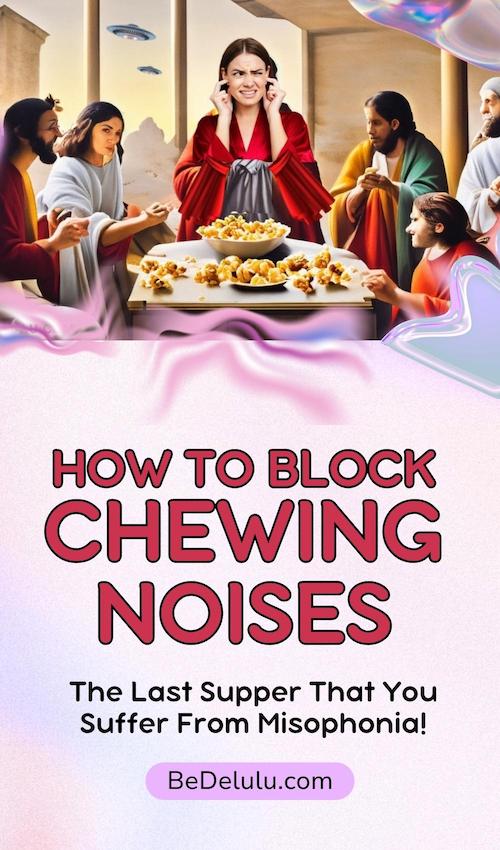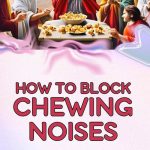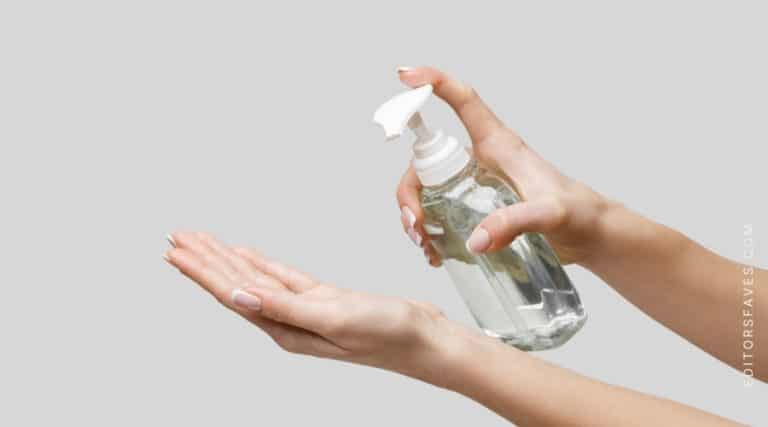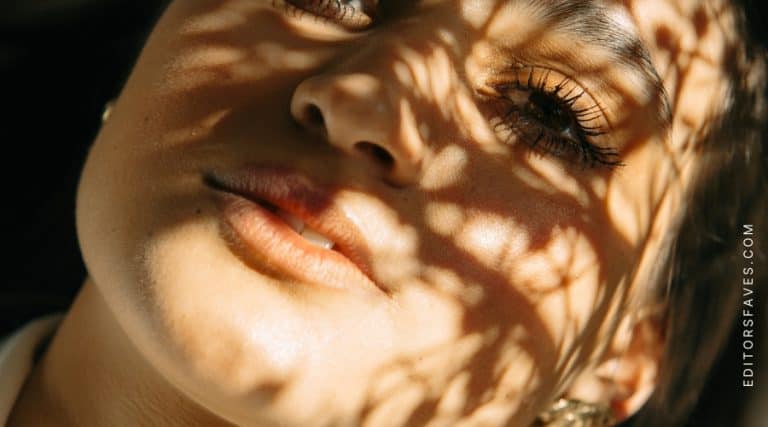Misophonia Help: 3 Solutions Block The Sound of Chewing Noises

Misophonia help is here. I have found some resources for dealing with misophonia in my own life, to block the sound of chewing noises, and I will share them with you today.
As an affiliate partner of various brands and sponsored content, we may earn commission on qualifying purchases. Disclaimer | Advertise With Us
Do you find yourself incredibly annoyed, even enraged by people making normal human noises like crunching food, slurping soup, sniffles, or just regular breathing?
This reaction is due to a condition known as misophonia. It’s a neurological disorder where everyday, innocuous sounds can trigger intense feelings of frustration, anxiety, and even cause panic attacks in some individuals.
In this guide to misophonia help, we will explore the condition and offer some practical misophonia solutions to help you deal with such triggers.
Let’s make last night the last supper you suffer from misophonia!
Misophonia Help: How To Block The Sound of Chewing Noises
If you suffer from misophonia, you already know the types of noises you can’t stand.
I have had misophonia since I was 8 and even writing the words ‘chewing’ and ‘slurping’ for the purpose of this article is making me feel annoyed!
But it’s hearing these noises that is the real torture.
These seemingly harmless noises can evoke strong, negative emotional responses, leading to discomfort and distress, and a flight-or-fight reaction where the sufferer can’t focus on anything else but escaping the noise.
This disorder can make social situations challenging and, at times, overwhelming, as the triggering sounds are often unavoidable in daily life.
While the scientific understanding of misophonia is still developing, it remains a real and significant struggle for those affected, impacting their quality of life and daily interactions.
Whether it’s the sound of someone chewing or the faint noise of breathing, for individuals with misophonia, these sounds can be an intense source of immense irritation and stress.
People who are mind-mannered and chill 99% of the time will go into a panic when they hear such noises.
Sitting down at a dinner table with family is torture, and working at an office where coworkers eat openly at their desks is impossible.
Misophonia can transform the perception of ordinary sounds into an unbearable experience for those who suffer from it.
Managing Life With Misophonia: Solutions and Coping Mechanisms That Really Work
Although there is no known permanent “fix” or cure for misophonia, there are some ways to manage it and live a calm, quiet life.
Management strategies primarily focus on minimizing exposure to triggering sounds and employing coping mechanisms when exposure is inevitable.
Most articles about misophonia help will suggest using noise-canceling headphones, earplugs, or listening to music.
All of these things can indeed help mask trigger sounds, and developing relaxation and stress-reduction techniques can assist in managing emotional responses.
However, there is one solution I have found to be the most beneficial, and it is THIS helpful product.
Why? Because you can wear them all day/night so you are prepared to be automatically protected against any offending noise that may pop into your space at any time!
Here’s what this misophonia solution looks like:
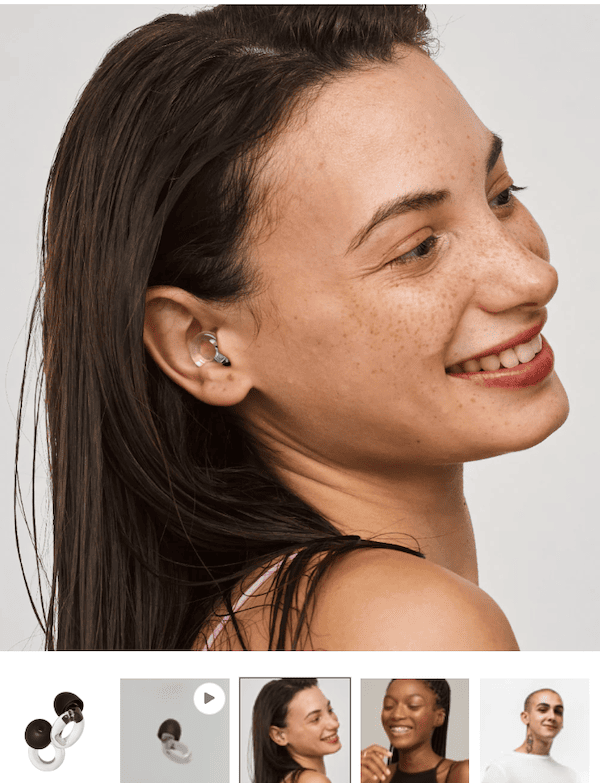
The #1 Best Solution For Blocking Out Chewing Noises
I recommend Loop Earplugs as the best earplugs for blocking chewing noises and other misophonia triggers.
With Loop, you can reduce the noise Info Icon up to 27 dB of noise reduction!
…Talk about a great way to block the sound of chewing noises!
Designed with comfort in mind, these flexible soft-touch silicone earplugs provide certified hearing protection and day and night comfort.
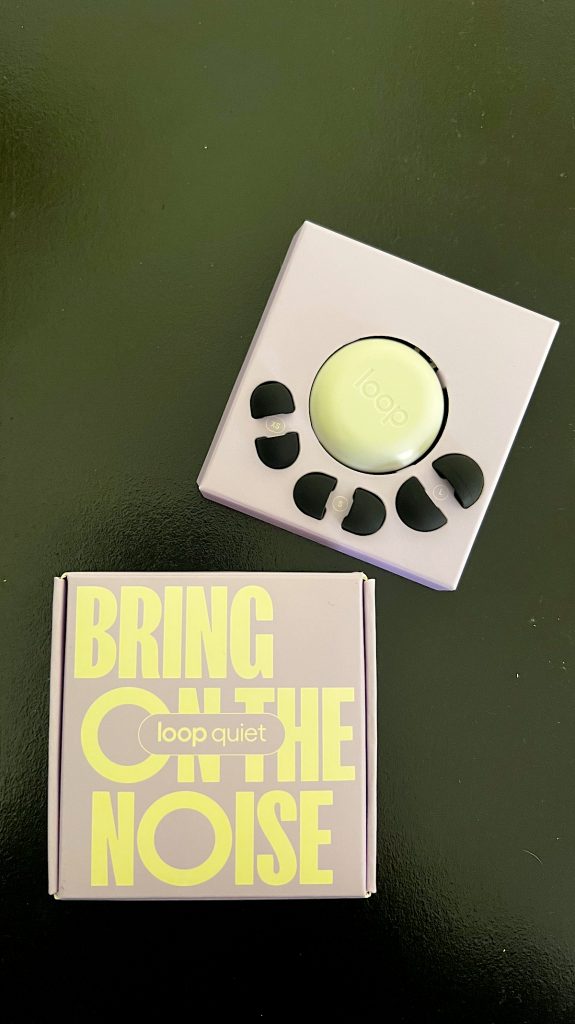
I wear mine during the day to be able to function in family dining situations, and at night to block out the sound of my husband breathing.
Not only do Loop Earplugs block out annoying sounds, but they look stylish too. They come with 4 interchangeable ear tip sizes, and are easy to clean.
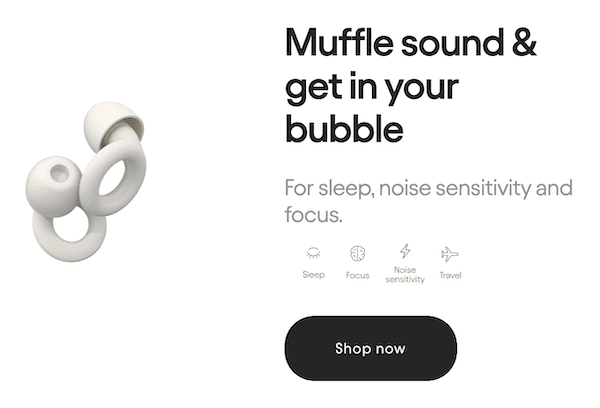
@jrharklau This is the best day EVER #misophonia#loopquiet @LoopEarplugs ♬ original sound – jordan harklau
More Ways To Manage Misophonia
People with misophonia often have to develop coping mechanisms to manage their reactions to these sounds, seeking ways to avoid exposure to trigger noises or finding methods to dampen their emotional responses.
Here are some ways to do so:
Cognitive-Behavioral Therapy (CBT) has been shown to be beneficial for some people with misophonia, aiding them in altering their thought patterns and reactions to sounds.
Meditation helped me balance my emotions greatly, once I started a daily meditation practice.
I still can’t stand eating noises, but I find that now I have more of a calm ‘runway’ if I don’t have my Loop Earplugs in, and need to flee. I can flee more calmly.
Delulu Mindset practice also has helped me greatly.
Basically, I’ve started to ‘trick’ my brain into thinking that an offending sound isn’t a danger, by telling it that I love the sound of chewing noises!
Obviously, this statement is not true, but our brains will believe anything we tell them, and over time it can help! Learn more about delulu mindset practice here.
Family Support For Dealing With Misophonia
It’s essential for those around misophonia sufferers to be understanding and considerate, recognizing the genuine distress these seemingly mundane noises can cause.
For many, creating a supportive environment where friends and family are understanding and accommodating can significantly enhance quality of life.
If you are a parent or partner of someone who suffers from misophonia, I know it can be very hard on you as well. Buy them a pair of Loop Earplugs. It will majorly help your relationship.
Addressing the condition with understanding and empathy is paramount in helping affected individuals navigate a world full of potential triggers.
What Is The Experience Of Misophonia Like?
Misophonia is a perplexing condition characterized by intense emotional reactions, often described as irritation, anxiety, or even rage, in response to specific sounds.
These sounds are usually related to the mouth and nose, and common triggers include chewing, swallowing, slurping, sniffling, or breathing noises, although any sound can potentially be a trigger depending on the individual.
These sounds, generally mundane and inconspicuous to most people, can become unbearable to those who have misophonia, causing a spectrum of emotions from discomfort to extreme anger.
WebMD says: “Misophonia is a disorder in which certain sounds trigger emotional or physiological responses that some might perceive as unreasonable given the circumstance. Those who have misophonia might describe it as when a sound ‘drives you crazy.’ Their reactions can range from anger and annoyance to panic and the need to flee.”
Is Misophonia a Form of Anxiety?
While the emotional response in misophonia is often intense and can mimic the heightened arousal seen in anxiety disorders, misophonia is not yet officially classified as an anxiety disorder.
However, the intense reactions to certain sounds can lead to increased stress and anxiety in situations where these sounds may be present, creating a life filled with avoidance and fear of exposure to triggering noises.
In my own experience, if I so much as see someone open a bag of potato chips, I will go into immediate panic of anxiety because I know what’s about to happen (I’ll hear the horrible sound of crunching any second).
I will feel an immediate and intense need to get away before the noise starts, and the anxiety is no doubt real.
This is why I always have my Loop Earplugs handy. Especially if I am somewhere where I can’t physically escape the noise.
Is Misophonia a Form of Autism?
Misophonia is not yet considered a form of autism or on the spectrum. Although, more research is being done to explore the connection.
However, there seems to be a higher prevalence of sensory sensitivities, including misophonia, in individuals with Autism Spectrum Disorder (ASD).
Autism is a complex neurodevelopmental disorder, and while misophonia can co-occur, it does not inherently signify the presence of autism.
Is Misophonia The Same as Phonophobia?
Misophonia is different from phonophobia, which is a fear of loud sounds, and hyperacusis, which is a heightened sensitivity to normal environmental sounds.
What Causes Misophonia?
The exact cause of misophonia is unknown, but it is believed to involve hyperconnectivity between the auditory system and the limbic system, which is involved in emotions.
Some research suggests a potential link between misophonia and anomalous connections between the auditory system and the limbic system, which regulates emotions.
ConnectHearing says: “Misophonia usually shows up during puberty, and the initial trigger sound is typically a family member eating. Misophonia is more common in women than in men and tends to appear more in people with higher IQs.”
This hyperconnectivity might cause everyday sounds to be processed differently, leading to the intense emotional reactions characteristic of misophonia.
Research is still in its nascent stages, with much to be learned about why and how misophonia develops and whether there are genetic or environmental predispositions.
Misophonia and Psychological Frameworks
Misophonia is currently not classified as a distinct mental disorder in major diagnostic manuals, like the DSM-5.
But is considered more a symptom or a condition that can co-occur with other disorders.
The intensity and specificity of emotional reactions in misophonia may lend itself to comparisons with various psychological and neurological conditions, but it remains a unique entity.
The Impact of Misophonia In Everyday Life
The implications of living with misophonia are profound.
It can constrain social interactions and impede the ability to engage in normal daily activities.
People with misophonia may avoid restaurants, public transport, and social gatherings to avoid potential triggers, leading to isolation and a decreased quality of life.
I avoid such movie theaters at ALL costs because I just know it’s a room full of people crunching popcorn!
I also had to quit my office job because the sound of people snacking at their desks was unbearable. Fortunately, I work from home now, as a means to cope.
Keep in mind that while misophonia can be distressing and disruptive to daily life, it is not currently classified as a mental disorder in major diagnostic manuals, such as the DSM-5, but is rather considered a symptom or a condition that can co-occur with other disorders.
The exploration and study of misophonia continue, with researchers aiming to understand the underlying causes and potential treatments for this intriguing and challenging condition.
It presents an opportunity for greater awareness and understanding of the impact that everyday sounds can have on an individual’s mental and emotional well-being.
This can prompt reflection on the varied and unique ways in which we all experience the world around us.
Misophonia Help To Block The Sound of Chewing Noises – Conclusion
Misophonia, characterized by extreme emotional reactions to specific sounds, is a complex and poorly understood condition.
It is not classified as an anxiety disorder or a form of autism, although it can coexist with various disorders, including ASD.
Current understanding points to abnormal connectivity between auditory and limbic systems as a possible cause, but more research is required to fully understand its etiology and develop effective treatments.
While there is no cure for misophonia, management strategies involving sound masking with Loop earplugs, cognitive-behavioral techniques, meditation, and supportive environments can help individuals cope with their symptoms and maintain a better quality of life.
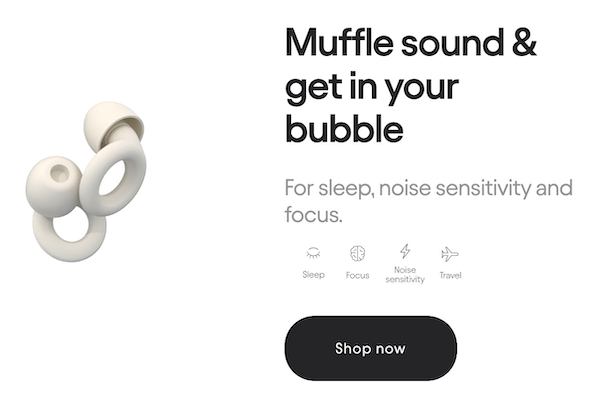
As our understanding of misophonia deepens, it is hoped that more effective and targeted interventions can be developed to help those suffering from this challenging condition.
Misophonia: How to lose friends and ruin relationships – by Carolyn Contreras
“Will you quit blinking so loud?” I yelled at one of my brothers one day when we were teenagers. The look on his face told me that I had a serious issue. Many years later, I now know that I have Misophonia. A condition that affects less than 200,000 people every year. If you don’t suffer from Misophonia, be grateful. If you do, hopefully you will find some comedic relief in this book and know, you are not alone.
This book is for anyone suffering from Misophonia or anyone that knows someone with this condition.
Read this next: why being intentionally delusional can help improve your life.
